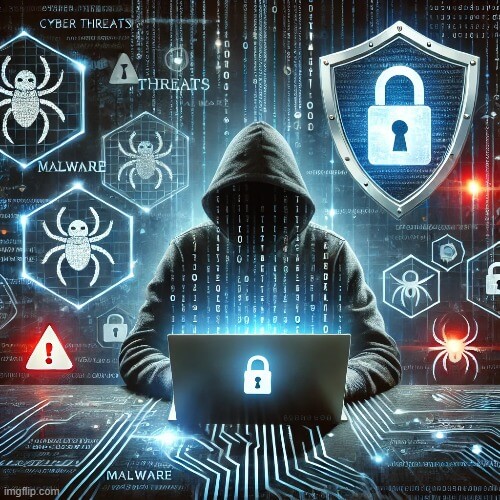Cyber attacks have become a major concern for individuals, businesses, and governments alike. A cyber attack refers to any deliberate attempt to breach, damage, or disrupt digital systems, networks, or devices. These attacks can have devastating consequences, ranging from financial losses to compromised national security. This blog provides an overview of cyber attacks, their types, impact, and the importance of cybersecurity measures in preventing them.
What is a Cyber Attack?

A cyber attack is an unauthorized attempt to access, manipulate, or damage a computer system or network. Cybercriminals, hackers, or even nation-state actors may launch these attacks to steal sensitive information, disrupt services, or cause chaos in critical infrastructures. As technology advances, cyber attacks have become more sophisticated, requiring robust security measures to counteract them.
Common Types of Cyber Attacks
Cyber attacks come in various forms, each targeting different vulnerabilities in digital systems. Some of the most common types include:
Malware Attacks
Malware (malicious software) includes viruses, worms, ransomware, and spyware. It is designed to infiltrate and damage computer systems.
Ransomware encrypts files and demands payment for their release.
Spyware secretly collects user data, often leading to identity theft.
Phishing Attacks
Cybercriminals send fraudulent emails or messages to trick individuals into providing sensitive information, such as login credentials or financial details.
Spear phishing targets specific individuals or organizations, making attacks more convincing.
Denial-of-Service (DoS) and Distributed Denial-of-Service (DDoS) Attacks
These attacks flood a network or website with excessive traffic, rendering it inaccessible.
DDoS attacks use multiple compromised systems to amplify the attack, making it harder to mitigate.
Man-in-the-Middle (MitM) Attacks
Attackers intercept and alter communications between two parties without their knowledge, potentially stealing confidential data.
SQL Injection Attacks
Malicious SQL queries are injected into a website’s database to extract sensitive information or manipulate data.
Zero-Day Exploits
These attacks target software vulnerabilities that are unknown to the vendor, leaving systems exposed until a patch is developed.
The Impact of Cyber Attacks
Cyber attacks can have severe consequences across different sectors:
Financial Losses: Businesses and individuals may suffer financial losses due to fraud, theft, or ransomware payments.
Data Breaches: Personal and sensitive corporate data can be exposed, leading to identity theft and reputational damage.
Operational Disruption: Organizations can experience downtime, affecting productivity and revenue.
National Security Threats: Government agencies and critical infrastructure can be targeted, endangering public safety.
Legal and Compliance Issues: Companies may face lawsuits and regulatory fines for failing to protect user data adequately.
Why Cybersecurity Matters

Cybersecurity measures are essential to safeguard digital assets and prevent cyber attacks. Here’s why cybersecurity should be a top priority:
Protecting Personal and Business Data
Strong security practices prevent unauthorized access and data breaches.
Encryption and multi-factor authentication add layers of security.
Preventing Financial Losses
Cybersecurity helps mitigate risks related to fraud and financial theft.
Regular security updates and monitoring reduce vulnerabilities.
Ensuring Business Continuity
Businesses must implement disaster recovery plans to minimize downtime.
Secure networks and backup strategies enhance resilience.
Building Customer Trust
Consumers are more likely to engage with companies that prioritize data protection.
Compliance with data privacy regulations boosts credibility.
To defend against cyber threats, individuals and organizations should adopt proactive security measures:
Use Strong Passwords and Multi-Factor Authentication (MFA)
Avoid weak passwords and reuse across multiple accounts.
Enable MFA to add an extra layer of security.
Regular Software Updates and Patching
Keep operating systems, applications, and security software updated.
Apply patches as soon as they become available.
Implement Network Security Measures
Use firewalls and intrusion detection systems to monitor network traffic.
Encrypt sensitive communications to prevent eavesdropping.
Educate Users About Cyber Threats
Conduct security awareness training for employees and users.
Teach best practices for identifying phishing scams and social engineering tactics.
Backup Data Regularly
Maintain secure backups to restore data in case of ransomware or system failures.
Store backups offline to prevent malware infection.
Conclusion
Cyber attacks continue to evolve, posing serious threats to individuals, businesses, and governments. Understanding cyber attacks and their impact is the first step in developing effective cybersecurity strategies. By implementing strong security practices, staying informed about emerging threats, and prioritizing data protection, we can minimize risks and create a safer digital environment. In the ever-changing landscape of cybersecurity, vigilance and proactive measures are key to defending against cyber threats.
Why Businesses Trust SecureMyOrg for Comprehensive Network Security
At SecureMyOrg, we uncover and fix all possible security vulnerabilities of mobile and web, while providing solutions to mitigate risks. We are trusted by renowned companies like Yahoo, Gojek and Rippling, and with 100% client satisfaction, you’re in safe hands!







Some of the things people reach out to us for –
- Building their cybersecurity program from scratch – setting up cloud security using cost-effective tools, SIEM for alert monitoring, building policies for the company
- Vulnerability Assessment and Penetration Testing ( VAPT ) – We have certified professionals, with certifications like OSCP, CREST – CPSA & CRT, CKA and CKS
- DevSecOps consulting
- Red Teaming activity
- Regular security audits, before product release
- Full time security engineers.
Relevant Posts

Top Cybersecurity Threats Facing Businesses In 2026
Businesses entering 2026 face a security landscape that is more complex, more interconnected, and far less forgiving than in previous years. Cybersecurity threats no longer
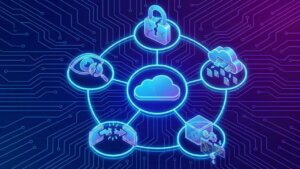
Top 5 Security Weaknesses Cloud-Native Apps Commonly Ignore
Cloud-native applications promise speed, flexibility, and scalability. Teams ship features faster, infrastructure adapts automatically, and operational overhead drops. Yet many organizations discover later that security
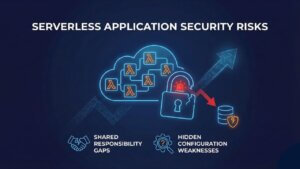
Why Weak Serverless Application Security Puts Your Business at Risk
Weak security in serverless environments often goes unnoticed until it leads to real damage. Misconfigured triggers, broad permissions, and poor visibility can expose sensitive data and disrupt business operations. Understanding where the risks appear is the first step toward building safer, more reliable serverless applications.
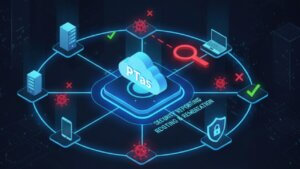
What Is Penetration Testing as a Service?
Penetration testing as a service (PTaaS) lets experts simulate real attacks to uncover vulnerabilities before hackers do. This guide explains the process, benefits, and costs, helping businesses strengthen defenses with predictable, ongoing security checks.
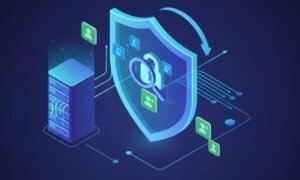
How To Inspect Encrypted Traffic Without Breaking Privacy
Network administrators face a challenge: securing systems while respecting privacy. This guide explains how to inspect encrypted traffic without breaking privacy using metadata, anomaly detection, and machine learning ensuring visibility, compliance, and trust.

How to Audit Infrastructure as Code (IaC) for Security Vulnerabilities
Discover how to audit Infrastructure as Code (IaC) for security vulnerabilities with this practical guide. Learn to scan IaC files using tools like Checkov, fix issues like exposed resources, and integrate audits into CI/CD pipelines. Protect your cloud systems from misconfigurations and ensure compliance with clear, actionable steps.
